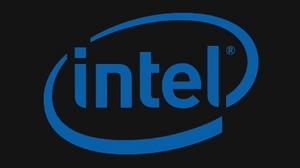Cybersecurity businessThe reason for Intel's acquisition of McAfee
The merger between the two companies takes place ahead of the release in 2011 of new — and as yet undisclosed — products developed by a joint venture the two companies have operated in the past eighteen months; those undisclosed products may be part of the reason why Intel decided to purchase McAfee instead of extending or expanding the two companies’ joint venture; says one analyst: “If what came out of that joint venture was revolutionary it could be that Intel wanted to lock that [intellectual property] down”

Chipmaker goes software // Source: softpedia.com
Intel’s multi-billion purchase of security software company McAfee is a long-term gamble for the chip-making giant, a bet that demand for security algorithms built into chips will offset the hefty premium Intel paid for McAfee (“Intel acquires McAfee for $7.68 billion,” 19 August 2010 HSNW).
Fox Business’s Ken Sweet writes that investors and industry analysts are questioning the $7.7 billion merger. They do see ways the chipmaker and McAfee, known primarily for its popular anti-virus software found on many PCs, can integrate each other’s product offerings, the marriage has received little praise from Wall Street.
“This deal came out of left field,” said Andy Ng, technology analyst with Morningstar. “You really have to dig pretty deep into the deal to understand what Intel sees in McAfee.”
Under the terms of the deal, Intel will pay McAfee shareholders $48 per share in cash for the Santa Clara, California-based company. It is a 60 percent premium to McAfee’s Wednesday closing share price.
Intel executives said McAfee fits well, detailing plans to integrate McAfee’s security software directly into Intel’s silicon. “The bottom line is the integration of Intel and McAfee will better improve security among PC users,” said Intel CEO Paul Otellini. “This transaction is part Intel’s transformation from a chip company into a computer company.”
Sweet notes that while virus and other security concerns have always been an issue for corporations, governments, and consumers alike since the dawn of the PC era, security attacks have become a much more prominent issue in recent years as more and more devices integrate with the Internet.
on concerns it might infect consumers’ bank accounts.
With McAfee, Intel hopes to weave security software directly into its chips and chipsets both on the PC market but also in the growing mobile market through Intel’s Atom processor product line.
“Anywhere we can sell silicon is an opportunity to see integrated security features as well,” said Renee James, general manager of Intel’s software and services group, who is at the head of the chipmakers’ push into this field.
Sweet writes that it is the mobile field that really makes McAfee attractive. Intel remains the world’s dominant desktop and notebook PC chip provider by a large margin, but has made little headway into smartphones or table-like devices such as Apple’s iPad. “They’ve been very successful in creating value-added products on the desktop side,” said Daniel Morgan, portfolio manager for Synovus Trust in Atlanta and a long-time owner of Intel shares. “But the company has struggled repeatedly to move beyond that. This is a radically different move for Intel to go out and purchase outside software to integrate later.”
Ng sees Intel’s purchase as a way for the company to pick up a highly profitable company while also providing an avenue to fight competition from companies like Advanced Micro Devices. “It’s just another way Intel can market and differentiate its chips from the competition,” Ng said.
The merger between the two companies takes place ahead of the release in 2011 of new — and as yet undisclosed — products developed by a joint venture the two companies have operated in the past eighteen months. “Those undisclosed products may be part of the reason why Intel decided to purchase McAfee instead of extending or expanding the two companies’ joint venture,” Sweet writers.
“If what came out of that joint venture was revolutionary it could be that Intel wanted to lock that [intellectual property] down,” said S&P Equity Research analyst Clyde Montevirgen.
Montevirgen said that without knowing exactly what Intel and McAfee have developed the deal looks to be “accretive by a few cents in 2011” but cannot go much beyond that. “It was a pricey acquisition and may be good longer-term for Intel to differentiate its product,” Montevirgen said. “But I can’t pinpoint what the return on this investment will be.”
